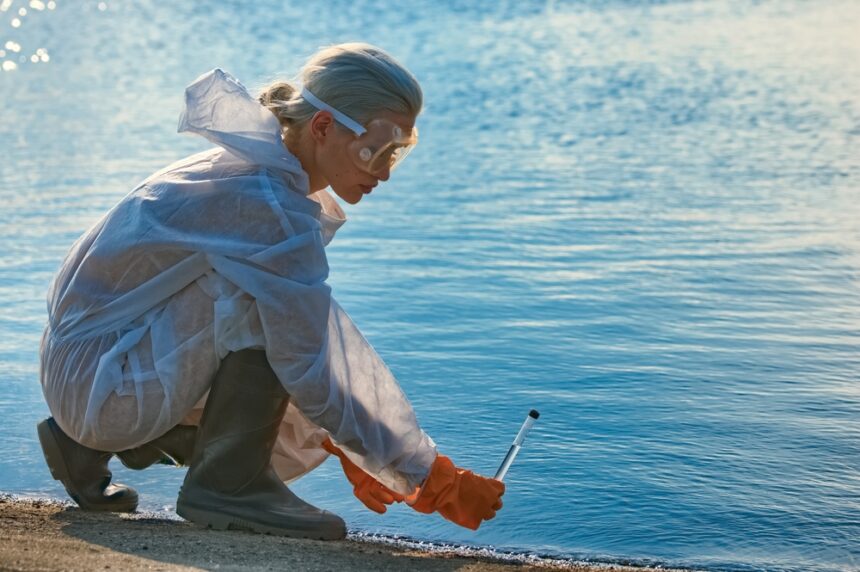For decades, members of the U.S. Marines and their family members that lived at the Camp Lejeune Marine Corps base were exposed to dangerous substances present in the area’s water supply. From approximately 1953 to 1987, multiple on-base water treatment facilities that supplied housing units and communal spaces were contaminated with deadly chemicals and other harmful substances. The contamination had multiple sources, ranging from improper chemical storage to runoff from an off-base drycleaning business.
During the approximately three decades that Camp Lejeune’s water was unfit for human use, volatile organic compounds (VOCs) posed one of the greatest health risks to the base’s residents. VOCs are human-made chemicals with low water solubility and high vapor pressure. They can dissolve in water and infiltrate drinking water supply wells, which unfortunately did happen at Camp Lejeune. Both VOCs and other chemicals found in the base’s water were capable of causing a range of health issues in humans, ranging from cancer to neurobehavioral effects.
In this article, we discuss the issues that led to the camp’s contaminated water issues, the potential adverse impacts of consuming or using the deadly water, and the ways in which victims may recover compensation for any harmful effects suffered.
What Were the Issues With Camp Lejeune’s Water?
Three of the water distribution systems at Camp Lejeune were confirmed to have been contaminated with VOCs, hydrocarbon fuels, solvents, or other chemicals at some point. These three facilities were referred to as Tarawa Terrace, Hadnot Point, and Holcomb Boulevard. It was these three facilities that supplied most of the base’s potable water, which was used for drinking, bathing, cleaning, and cooking.
While all three facilities produced dangerous water at some point, the water supplied by Holcomb Boulevard may have been the least deadly. That specific facility’s water only ever tested for an unsafe amount of trichloroethylene (TCE), and this occurred when the system’s water supply was supplemented by Hadnot Point.
The Agency for Toxic Substances and Disease Registry (ATSDR) released a comprehensive report on the base’s water contamination in 2013. Among other findings, the report was able to use “site assessments, remedial investigations, and leaking underground storage tank reports” to determine the likely causes of contamination. Improper disposal of chemical and fuel waste, along with accidental TCE and benzene releases around buildings, likely led to the contamination of water supply wells.
Other incidents regarding the proper cleanup of chemical contaminants simultaneously plagued the Marine Corps base. A building that was used to store and mix pesticides was later converted into a daycare center, which likely played a role in the frequent deaths of infants and young children on the base. A civilian worker claims to have buried “50 drums of either mustard gas or nerve gas” at the site of the converted nursery. While it is difficult to substantiate this claim, it is a demonstrable fact that the number of birth defects and child fatalities at the base were abnormally high.
Potential Health Consequences of Toxic Water Exposure
Extended exposure to Camp Lejeune’s toxic water is capable of causing health conditions such as:
- Bladder cancer
- Breast cancer
- Leukemia
- Lung cancer
- Female infertility
- Miscarriage
- Kidney cancer
- Scleroderma
- Myelodysplastic syndromes
- Non-Hodgkin’s lymphoma
- Neurobehavioral effects
- Hepatic steatosis
- Esophageal cancer
- Renal toxicity
- Multiple myeloma
The U.S. Department of Veterans Affairs (VA) considers the fifteen health problems mentioned above as “presumptive conditions” for Camp Lejeune toxic water exposure. A presumptive condition is a disability that the VA automatically presumes was caused by a person’s military service. Veterans who suffered any of the aforementioned conditions after serving at Camp Lejeune for thirty days or longer from 1953 to 1987 and using the base’s toxic water may be eligible for disability compensation.
How Camp Lejeune Victims Can Secure Compensation for Their Injuries
In some cases, Marine Corps veterans and their family members that suffered harm due to Camp Lejeune’s water may be able to secure compensation through the VA’s healthcare offerings or disability compensation. In some cases, veterans may find that their costs of care significantly exceed the limits of their healthcare coverage or disability rating. Fortunately, the passage of the Honoring our Promise to Address Comprehensive Toxics (PACT) Act offers an additional opportunity for wounded service members to secure fair compensation.
The PACT Act was signed into law by President Biden on August 10th, 2022. The PACT Act expands healthcare coverage for veterans who suffered a wide range of illnesses and injuries during their service. Included within the act are provisions for soldiers who inhaled chemicals from burn pits, were exposed to Agent Orange, or suffered harm from radiation at Thule Air Force Base. Encompassed within the PACT Act is the Camp Lejeune Justice Act, which specifically supports victims of the base’s deadly water.
Veterans or family members who lived at Camp Lejeune during the contamination period may file lawsuits against the government to seek relief for health conditions caused by exposure to toxic water. A successful lawsuit may allow victims to recover damages for:
- Past and future medical expenses
- Specialized medical care or therapies
- Lost wages, including future earnings and benefits
- Pain, disability, and suffering
- Loss of quality of life, emotional pain, or depression
Camp Lejeune — A Tale of Preventable Tragedy
At the end of the day, Camp Lejeune’s water contamination issues could have likely been prevented or mitigated by more effective oversight of on-base waste disposal and routine testing of well water quality. Even when issues with the base’s water supply became undeniable, Marine authorities were reluctant to take definitive action to address the situation and inform soldiers and Camp Lejeune residents of potential health hazards.
It was not until three separate reports on the base’s water quality were released that contaminated wells began to be shut down in the 1980’s. While shutting down the affected wells and implementing stricter procedures to control water quality reduced the impact on residents of Camp Lejeune post-1987, taking action sooner could have saved countless lives.








